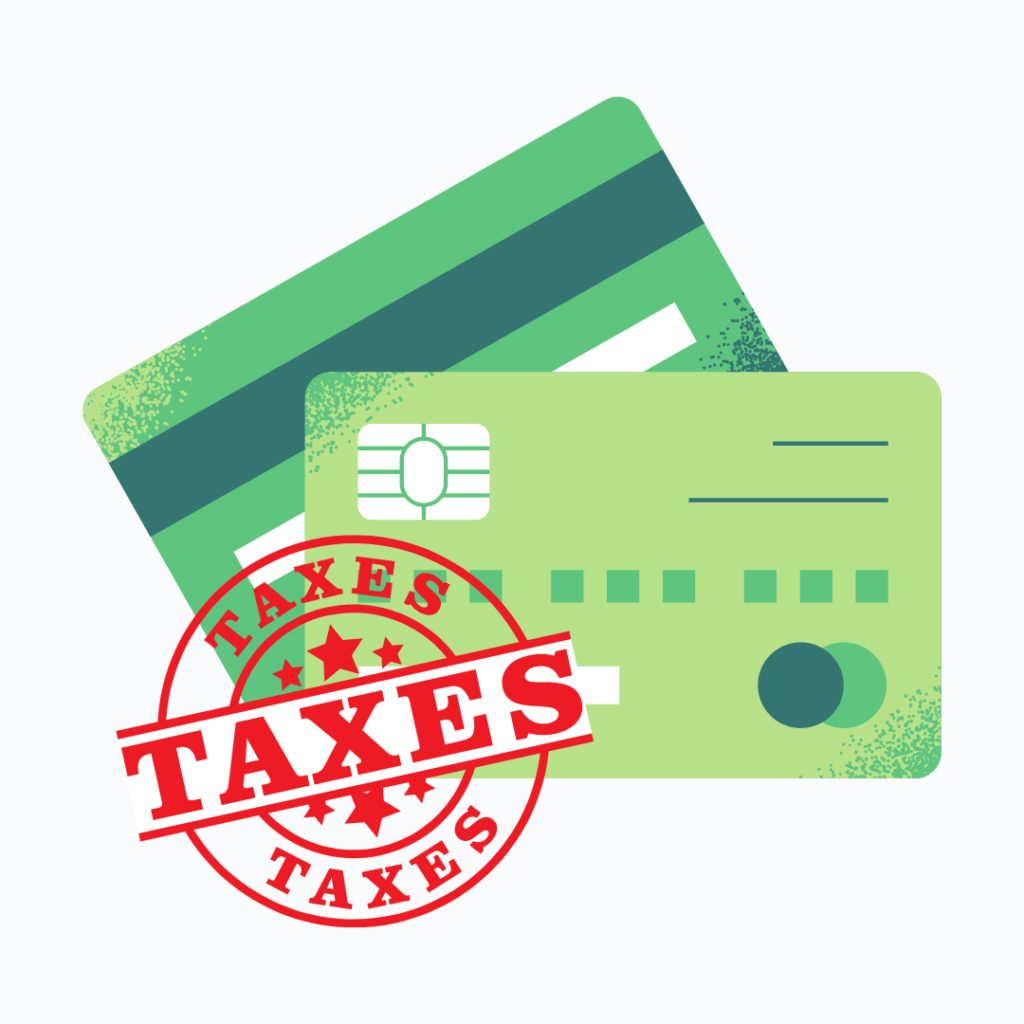Crypto Credit Cards: Explained
Crypto credit cards allow users to earn rewards in cryptocurrency while making purchases with fiat currency, like any regular credit card.
Crypto credit cards and debit cards have witnessed a remarkable surge in popularity in recent years. This trend is reflected in Visa’s Q1 2022 earnings report, where users made a staggering $2.5 billion in payments using crypto-connected cards during the fiscal first quarter.
But what exactly are crypto credit cards? How do they work? What sets them apart from crypto debit cards? And are there any tax implications to consider? In this comprehensive guide, we will delve into all these questions, shedding light on the possibilities and limitations of crypto reward cards.
What is a Crypto Credit Card?

Crypto credit cards are essentially the same as their traditional counterparts, offering a monthly spending limit that users must repay before their due date.
However, there’s a common misconception that crypto credit cards offer cryptocurrencies as credit for users to spend. But that’s not entirely true.
Just like traditional credit cards, crypto credit cards (also known as crypto rewards cards) provide credit in fiat currency, such as USD, EUR, or any other supported currency. So, no, you won’t be swiping your card and spending actual cryptocurrencies directly. Instead, you’ll use your card to make purchases in your fiat currency, just like you would with any other credit card.
So, what sets crypto credit cards apart?
Well, the exciting twist lies in the rewards. While traditional credit cards typically offer rewards in cashback or travel perks based on a percentage of your spending, crypto credit cards take things a step further.
They allow users to choose a specific cryptocurrency to earn as reward for their spending. So, whether you’re buying groceries, booking flights, or treating yourself to a shopping spree, you can accumulate cryptocurrency rewards alongside your purchases.
How Does it Work?
Crypto credit cards function similarly to regular credit cards, allowing users to make purchases in physical and online stores, wherever popular card networks like VISA or Mastercard are accepted. It’s as simple as swiping your card or entering the card details during an online checkout.
Just like with a regular credit card, you’ll receive a monthly statement outlining your expenses and transactions. And, of course, you must pay back the borrowed amount before the due date to avoid additional charges.
While most crypto reward cards require you to settle your bills with fiat currency, there are some exceptions – VISA cardholders, for example, can clear their bills using crypto. This added flexibility caters to crypto enthusiasts who prefer to keep their financial transactions within the crypto realm.
As mentioned, crypto credit cards provide cashback and rewards in cryptocurrencies, allowing users to accumulate digital assets while making everyday purchases.
However, how much you earn will vary depending on your card choice, typically ranging from 1.5% to 3% on eligible purchases. It’s essential to familiarize yourself with these reward rates and structure for each card.
Some cards may increase reward rates after meeting certain spending thresholds, while others offer higher rewards on specific spending categories like dining or groceries. For instance, the SoFi Credit Card offers up to 2% cashback, while the Venmo Credit Card offers up to 3% cashback in the top spending category.
As for receiving your rewards, the process can differ among cards. Some cards distribute rewards monthly, while others provide them with each transaction, allowing you to enjoy the benefits in real time.
So overall, when exploring different crypto reward cards, always inquire about their rewards process to see if it fits with your spending habits and goals.
Pros and Cons of Crypto Reward Cards
Pros
Crypto Rewards: People with an interest in crypto investing can benefit from potential price appreciation by earning rewards in cryptocurrencies.
Flexibility: Crypto reward cards offer the ability to choose specific cryptocurrencies to receive as rewards, allowing users to tailor their rewards to their preferences.
Accepted Worldwide: Most crypto credit cards operate on the Mastercard and VISA card network, enabling you to use them in any physical or online store worldwide that accepts these card networks. This makes them a convenient option for international travel and online purchases.
Cons
Volatility: The volatility of cryptocurrencies can cause significant fluctuations in the value of rewards, potentially resulting in a loss.
Not Available Worldwide: While many of the top crypto reward cards are available in the United States, their availability may not extend worldwide or even to every state in the country.
Less Rewards: If you want to maximize your cashback and rewards, a regular credit card might be more beneficial than a crypto credit card. Standard credit cards often offer better cashback and rewards than crypto credit cards, which typically only offer 1-3% rewards.
Alternatively, you can use a regular credit card that offers cashback in fiat currency and use them to purchase crypto instead of going through the hassle of obtaining a crypto credit card and settling for lower rewards.
Crypto Credit Cards Vs Crypto Debit Cards: What’s the Difference?
The difference between a crypto credit card and a crypto debit card is subtle but crucial.
While crypto credit cards function similarly to traditional credit cards, providing a line of credit in fiat currency and offering rewards, crypto debit cards directly connect to your crypto assets, allowing you to spend your cryptocurrencies at any merchant accepting Visa or Mastercard.
These cards are directly linked to your crypto wallet or crypto exchange accounts. So, instead of spending borrowed money, you’re effectively spending your own cryptocurrencies. Functionally, crypto debit cards work much like standard debit cards. The key distinction lies in the fact that they hold cryptocurrencies instead of traditional fiat currency.
Many people use crypto debit cards to avoid high exchange rates when traveling abroad. By using a crypto debit card, they can conveniently spend their cryptocurrencies without manually converting them into fiat currency, saving on potential fluctuations in exchange rates.
Check out our comprehensive guide on crypto debit cards for an in-depth understanding of how they work.
Taxes on Using Crypto Credit Cards

The IRS in the United States, and tax authorities in other countries, such as the HMRC and CRA, generally view credit card rewards and cashback as discounts and rebates on purchases. Therefore, they treat them as non-taxable. But you may be subject to capital gains taxes when you sell them in the future, assuming their prices appreciate over time.
That said, there are some nuances and differences in how these rewards are treated in specific jurisdictions. For example, the Canada Revenue Agency (CRA) considers cashback and rewards earned through purchases as discounts, making them non-taxable. But if they were business expenses, they may be treated as taxable income.
There is also some confusion and ambiguity around how the ATO treats rewards received in crypto, as some tax experts suggest that these rewards receive the same tax treatment as airdrops. Hence, taxable income.
In the US, it’s pretty clear that rewards and cashback are not taxable. However, if you’re from a different country and unsure about the tax implications, we suggest you consult a tax professional.
It’s also worth mentioning that some card providers offer sign-up bonuses on issuing a new card. Since signing up for a card is not the same as making a purchase, receiving cryptocurrency as a sign-up bonus is generally considered taxable income.
In such cases, you would need to pay income tax rates on the fair market value of the crypto at the time of acquisition. The same is true for most countries that treat crypto income as taxable income.
In conclusion, while crypto credit card rewards are often considered non-taxable, be aware of the potential tax implications of selling these rewards in the future. Additionally, sign-up bonuses provided by card issuers are generally considered taxable income.
How to Get a Crypto Reward Card?
Applying for a crypto credit card follows the same process as applying for any regular credit card.
First, you fill out an application provided by the card provider. This application typically requires personal information and details about your financial situation, including your credit score. Generally, crypto credit cards require a good to excellent credit score for approval.
After submitting your application, the card provider will evaluate your information and creditworthiness. If approved, you’ll be issued a virtual or physical card, depending on the provider and what you opted for.
As we previously mentioned, before applying for a specific crypto credit card, consider the various features and benefits offered by different cards and what suits you best.
For example, if you’re a frequent traveler, prioritize a card that offers more cashback and rewards on travel expenses. Similarly, if dining out is a regular part of your lifestyle, look for a card that provides higher cashback and rewards on restaurant spending.
Furthermore, select a card that offers the specific cryptocurrencies you wish to invest in. Each card supports a distinct range of cryptocurrencies, so choose one that aligns with your investment goals.
Check out our best crypto credit card list, where we explain in-depth how to choose the right card provider.
Are Crypto Reward Cards Safe?
There are mainly two risks associated with using a crypto reward card.
The most obvious one is the volatility of cryptocurrencies. It’s possible that you might experience a loss if the crypto you received in rewards and cashback decreases significantly in value.
The second is a hypothetical risk of your card provider going bankrupt or collapsing. Just a couple of years ago, most people may have considered this an irrational fear. But this has become an actual probability after the recent FTX bankruptcy and the Silicon Bank collapse.
An example is BlockFi, a company that used to offer crypto reward cards, which recently faced bankruptcy. Although such situations are relatively rare, it’s essential to be aware of them.
Aside from these, using a crypto credit card is as safe and convenient as using any traditional credit card. However, you must practice standard safety measures, like regularly monitoring your transactions, keeping your card details confidential, and enabling two-factor authentication to safeguard yourself.
Should You Get a Crypto Credit Card?
While on the surface, a crypto credit card that offers the convenience of investing in crypto while using a credit card, which most people do anyway, may seem like a win-win, it might not always be the case.
When comparing the benefits and drawbacks of a crypto reward card against those of a regular credit card, it becomes less likely that the latter is the better option.
Regular credit cards often offer higher rewards and cashback rates, which you can (sometimes) utilize to purchase crypto without limiting yourself to only cryptocurrencies as rewards. This flexibility becomes especially significant when considering the tax implications of spending your crypto in the future, which may result in capital gains taxes.
Considering these factors, opting for a regular credit card might be more advantageous overall. However, if, after carefully evaluating your circumstances and weighing the pros and cons, you conclude that a crypto reward card aligns with your financial goals and preferences, then it may be worth exploring further.